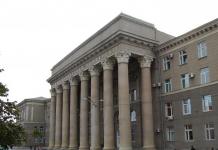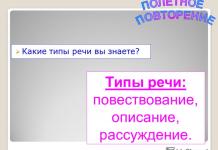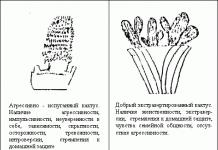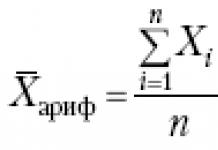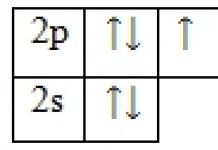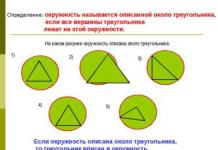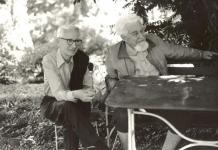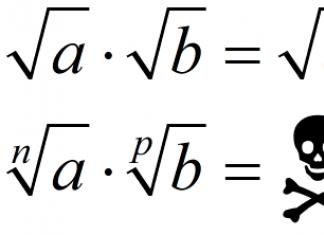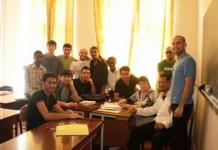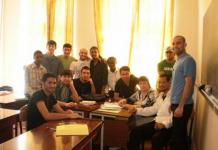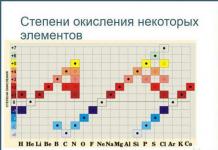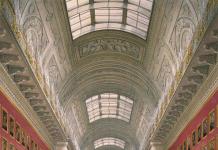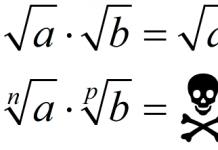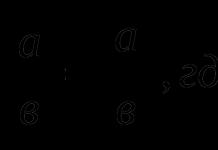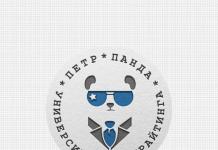There were many unsuccessful attempts to assassinate the president of the self-proclaimed Republic of Ichkeria, which gave rise to rumors that Dudayev was under conspiracy
Liquidation order Dzhokhara Dudayeva the special services received it at the beginning of the first Chechen campaign. However, the rebel leader seemed to be invulnerable - all attempts on his life ended in failure. “The Rebel General,” as Dudayev was also called, who was the only Chechen general in the USSR in Soviet army, remained alive.
Wolf hunt
There were three major attempts to destroy Dudayev. At first they wanted to “remove” him with the help of a sniper. People were recruited from the rebellious president’s entourage who, for a reward, gave out information about his movement. They organized an ambush, but the sniper missed.
The second attempt was in May 1994. Then it was decided to simply blow up Dudayev’s car. A VAZ-2109 stuffed with explosives was abandoned on the side of the road 20 kilometers from Grozny. When Dzhokhar Dudayev's motorcade caught up with the "nine", a powerful explosion occurred. The Volga in which the Ichkerian “Minister of Internal Affairs” was traveling was torn to shreds. The Mercedes with Dudayev was thrown several meters away by the shock wave and overturned. Despite the fact that the windshield was knocked out and the car was badly damaged, Dzhokhar Dudayev and his guards were not injured.
The third attempt that is known about is an attempt to destroy the house in which the leader was located Chechen Republic Ichkeria, with the help of aviation. The agent planted a radio beacon, but it was not for nothing that Dudayev was famous for his bestial instincts. He left the house with his guards literally five minutes before an aircraft missile was fired at him.
Last conversation
A new large-scale operation to eliminate Dudayev was planned for the spring of 1996. Russian intelligence services were well aware that Dudayev was using an American Inmarsat satellite phone. This was enough to develop technology that would locate a satellite station and transmit data to aviation. Initially, the cost of all equipment was announced - 1 million 200 thousand dollars. A group of scientists managed it, saving the budget by half.
At the same time, work was carried out with agents. From among those close to Dudayev, people were recruited who, for a decent “fee”, told that he was in the village of Gekhi-Chu, where he visited the so-called military prosecutor of the republic Magomed Dzhanieva. They reported that not far from the village, the leader of the Chechen separatists was stopping in a vacant lot to negotiate via satellite communications.
On the evening of April 21, 1996, the A-50 early warning aircraft was lifted into the air. On board there was equipment to detect Dudayev’s satellite phone signal. The intelligence services knew the approximate time when he would get in touch. Two SU-24 bombers also circled over Chechnya. At this time, Dudayev decided to communicate with Konstantin Borov. The conversation went on longer than usual, about 10 minutes, and was interrupted several times. This was enough for the equipment to transmit target designation to the Air Force.
During the communication session, the guards were in the car, Dudayev himself walked away with the receiver, and the general’s wife and another bodyguard went down to the ravine. Two missiles rushed towards the target - one stuck into the ground and did not explode, the other hit Dudayev’s Niva. The agents, who were not aware of the time of the operation, later reported that Dudayev “had half his skull blown off.” The widow immediately realized that her husband was not a tenant. Along with the “Generalissimo of Ichkeria,” as he was called in the republic, two bodyguards died.
Rumors about the “living” Dudayev
He was the first to loudly declare that the operation of the Russian security forces had failed. Salman Raduev in June 1996. This man, who himself had previously been declared killed, held a press conference and swore on the Koran that he had met with General Dudayev in Europe, that he promised to return “when necessary.” Later, while in custody in Lefortovo, Raduev will renounce these words.
A State Duma deputy from the LDPR said that Dudayev is alive and is in Istanbul Alexey Mitrofanov in front of Turkish media cameras in October 1998. There were other stories about the “living” Dudayev.
The final point in history was put by Vesti journalists in the early 2000s. They presented the public with a documentary film showing Dudayev dead and burned. The footage is dated April 23, 1996.
20 years ago, the rich history of Chechnya underwent a new sharp turn: the first president of the unrecognized Chechen Republic of Ichkeria, Aviation Major General Dzhokhar Dudayev, gave his last order on April 21, 1996 - to live long. In any case, that is what is commonly believed.
Those chroniclers who talk about the “official version” of Dudayev’s death are either mistaken or disingenuous. Because in fact, there is no official version. The compilers of the Bolshoi are much more honest with readers. encyclopedic dictionary, which capped the article dedicated to the rebel general with an impeccable phrase from a fact-checking point of view: “In April 1996, his death was announced under unclear circumstances.”
Exactly. It is still not known where Dudayev’s grave is located, if there is one at all. We know that the general lost his life on April 21, 1996, as a result of either a missile or bomb attack, solely from the words of representatives of his inner circle. Even less official sources of information about the operation of the Russian special services, which allegedly caused the death of the general. The reliability of this information is, however, supported by the fact that since then there has been no word or breath about Dudayev. “If I had been alive, wouldn’t I have shown up?!” - opponents of alternative versions are seething. The argument, needless to say, is weighty. But it does not close the topic at all.
Version No. 1
The main witness in the case of the death of the President of Ichkeria is, of course, his wife Alla Dudayeva - nee Alevtina Fedorovna Kulikova. According to Dudayeva’s “testimony”, recorded in her memoirs, the commander-in-chief of the separatist army, constantly moving around Chechnya, on April 4, 1996, settled with his headquarters in Gekhi-Chu, a village in the Urus-Martan region of Chechnya, located approximately 40 kilometers to the southwest from Grozny. The Dudayevs - Dzhokhar, Alla and their youngest son Degi, who was 12 years old at that time - settled in the house of the younger brother of the Prosecutor General of Ichkeria, Magomet Zhaniev.During the day, Dudayev was usually at home, and at night he was on the road. “Dzhokhar, as before, traveled around our Southwestern Front at night, appearing here and there, constantly being close to those who held positions,” Alla recalls. In addition, Dudayev regularly traveled to the nearby forest for communication sessions with outside world carried out through the installation of Immarsat-M satellite communications. The Ichkerian president avoided calling directly from home, fearing that Russian special services might detect his location using an intercepted signal. “In Shalazhi, because of our telephone, two streets were completely destroyed,” he once shared his concern with his wife.
Nevertheless, it was impossible to avoid risky calls. The Chechen war was entering a new phase these days. On March 31, 1996, Yeltsin signed a decree “On the program for resolving the crisis in the Chechen Republic.” Its most important points: the cessation of military operations on the territory of the Chechen Republic from 24.00 on March 31, 1996; gradual withdrawal of federal forces to the administrative borders of Chechnya; negotiations on the specifics of the status of the republic between authorities... In general, Dudayev had a lot to chat about on the phone with his Russian and foreign friends, partners and informants.
From one of these communication sessions, which took place a few days before Dudayev’s death, the general and his retinue returned earlier than usual. “Everyone was very excited,” Alla recalls. - Dzhokhar, on the contrary, was unusually silent and thoughtful. Musick (Musa Idigov’s bodyguard) took me aside and, lowering his voice, whispered excitedly: “One hundred percent they’re hitting our phone.”
However, as presented by the general’s widow, the picture of what happened looks, to put it mildly, fantastic: “The starry night sky opened up above them, suddenly they noticed that their companions were above their heads like on a “New Year’s tree.” A beam stretched from one satellite to another, crossed with another beam and fell along a trajectory to the ground. Out of nowhere, the plane emerged and struck with a depth charge of such crushing force that trees around them began to break and fall. The first was followed by a second similar blow, very close.”
Be that as it may, the incident described above did not force Dudayev to behave more carefully. On the evening of April 21, Dudayev, as usual, went to the forest for telephone conversations. This time he was accompanied by his wife. In addition to her, the retinue included the aforementioned Prosecutor General Zhaniev, Vakha Ibragimov, Dudayev’s adviser, Hamad Kurbanov, “representative of the Chechen Republic of Ichkeria in Moscow,” and three bodyguards. We drove two cars - a Niva and a UAZ. Having arrived at the place, Dudayev, as usual, placed the diplomat with satellite communication on the hood of the Niva and removed the antenna. First, Vakha Ibragimov used the phone and made a statement for Radio Liberty. Then Dudayev dialed the number of Konstantin Borovoy, who was at that time a State Duma deputy and chairman of the Economic Freedom Party. Alla, according to her, was at that time 20 meters from the car, on the edge of a deep ravine.
She describes what happened next: “Suddenly, from the left side there was a sharp whistle of a flying rocket. An explosion behind me and a flashing yellow flame forced me to jump into the ravine... It became quiet again. What about ours? My heart was pounding, but I hoped that everything would be okay... But where did the car and everyone who stood around it go? Where is Dzhokhar?.. Suddenly I seemed to stumble. I saw Musa sitting right at my feet. “Alla, look what they did to our president!” On his knees... lay Dzhokhar... Instantly I threw myself on my knees and felt his whole body. It was intact, there was no blood flowing, but when I reached the head... my fingers entered the wound on the right side of the back of the head. My God, it’s impossible to live with such a wound...”
Zhaniev and Kurbanov, who were next to the general at the time of the explosion, allegedly died on the spot. Dudayev himself, according to his wife, died a few hours later in the house they then occupied.

Strange woman
Konstantin Borovoy confirms that he spoke with Dudayev that day: “It was around eight in the evening. The conversation was interrupted. However, our conversations were interrupted very often... He sometimes called me several times a day. I am not one hundred percent sure that the missile attack occurred during our last conversation with him. But he didn’t contact me anymore (he always called, I didn’t have his number).” According to Borovoy, he was a kind of political consultant to Dudayev and, in addition, played the role of an intermediary: he tried to connect the Ichkerian leader with the administration of the Russian President. And some contacts, by the way, began, although not direct, “between Dudayev’s entourage and Yeltsin’s entourage.”Borovoy is firmly convinced that Dudayev was killed as a result of an operation by Russian special services that used unique, non-serial equipment: “As far as I know, specialist scientists took part in the operation, who, using several developments, were able to identify the coordinates of the source electromagnetic radiation. At the moment when Dudayev got in touch, the electricity was turned off in the area where he was in order to ensure the isolation of the radio signal.”
The words of an irreconcilable critic of the Russian special services are almost identical to the version that appeared several years ago in the Russian media with reference to retired GRU officers who allegedly directly participated in the operation. According to them, it was carried out jointly military intelligence and the FSB with the participation Air Force. Actually, this version is considered to be official. But the sources of information themselves admit that all materials from the operation are still classified. And they themselves, there is such a suspicion, are not completely “deciphered”: it is doubtful that the real participants in the liquidation of Dudayev would begin to tell the truth, calling themselves by their own names. Risk, of course, is a noble cause, but not to the same extent. Therefore, there is no confidence that what was told is the truth and not misinformation. Nikolai Kovalev, who held the post of deputy director of the FSB in April 1996 (two months later, in June 1996, he headed the service), in a conversation with an observer that took place several years after those events, completely denied the involvement of his department in the liquidation of Dudayev: “ Dudayev died in the combat zone. There was quite a massive shelling. I think there is simply no reason to talk about some kind of special operation. Hundreds of people died the same way.” At that time, Kovalev was already retired, but, as we know, there are no former security officers. Therefore, it is likely that Nikolai Dmitrievich did not speak from the bottom of his heart, but what his official duty dictated.
However, on one point Kovalev completely agreed with those who claim that Dudayev was eliminated by our special services: the ex-head of the FSB called the assumptions that the Ichkerian leader could have survived completely frivolous. At the same time, he referred to the same Alla Dudayeva: “Is your wife an objective witness for you?” In general, the circle is closed.
The version presented by Alla, for all its external smoothness, still contains one significant inconsistency. If Dudayev knew that the enemies were trying to find the direction of the phone signal, then why did he take his wife on that last trip to the forest, thereby exposing her to mortal danger? There was no need for her presence. In addition, many note oddities in the widow’s behavior: she did not seem at all heartbroken in those days. Well, or, at least, she carefully hid her experiences. But such composure is extremely unusual for a person of her psychological make-up. Alla is a very emotional woman, which is already clear from the memoirs dedicated to her husband: the lion's share of them is devoted to prophetic dreams, visions, prophecies and various kinds of mystical signs.
She herself offers the following explanation for her reticence. “I officially, as a witness, stated the fact of the death of the president, without a single tear, remembering Amkhad’s request, old Leila and hundreds, thousands of weak and sick old people and women in Chechnya like her,” Alla says about her speech at the press conference. conference held on April 24, three days after her husband's death was announced. - My tears would kill their last hope. Let them think that he is alive... And let those who greedily hang on every word about Dzhokhar’s death be afraid.”
But what happened a few weeks later can no longer be explained by a desire to encourage friends and scare enemies: in May 1996, Alla suddenly appears in Moscow and calls on Russians to support Boris Yeltsin in the upcoming presidential elections. A man who, based on her own interpretation of events, sanctioned the murder of her beloved husband! Then, however, Dudayeva stated that her words were taken out of context and distorted. But, firstly, even Alla herself admits that speeches “in defense of Yeltsin” did take place. The fact that the war brought nothing but shame to the president and that the cause of peace is being hampered by the “war party” that is substituting him. And secondly, according to eyewitnesses - including, for example, political emigrant Alexander Litvinenko, who in this case can be considered a completely objective source of information - there were no distortions. Dudayeva began her first Moscow meeting with journalists, held at the National Hotel, with a phrase that did not allow any other interpretation: “I urge you to vote for Yeltsin!”
Nikolai Kovalev does not see anything strange in this fact: “Perhaps she considered that Boris Nikolaevich was an ideal candidate for solving the Chechen problem peacefully.” But such an explanation, even if one wants to, cannot be called exhaustive.
One of the main visual evidence that Dzhokhar Dudayev did pass away is photo and video footage depicting Alla Dudayeva next to the body of her murdered husband. However, they do not convince skeptics at all: there is no independent confirmation that the shooting was not staged.
Operation Evacuation
The observer had even greater doubts about the generally accepted interpretation of the events that happened on April 21, 1996, after a conversation with the late President of the Russian Union of Industrialists and Entrepreneurs, Arkady Volsky. Arkady Ivanovich was the deputy head of the Russian delegation at negotiations with the Ichkerian leadership that took place in the summer of 1995, after the Budennovsky raid by Shamil Basayev. Volsky met repeatedly with Dudayev and other separatist leaders and was considered one of the most knowledgeable representatives of the Russian elite in Chechen affairs. “I immediately asked the experts then: is it possible to point a half-ton missile at a target using a mobile phone signal? - said Volsky. - I was told that it is absolutely impossible. If the rocket even felt such a subtle signal, it could turn to any mobile phone.”But the main sensation is different. According to Volsky, in July 1995, the country's leadership entrusted him with a responsible and very delicate mission. “Before leaving for Grozny, with the consent of President Yeltsin, I was instructed to offer Dudayev travel abroad with his family,” Arkady Ivanovich shared the details of this amazing story. - Jordan gave consent to accept him. Dudayev was given an airplane and the necessary equipment at his disposal. cash" True, the Ichkerian leader then responded with a decisive refusal. "I was about you better opinion, he told Volsky. - I didn’t think that you would offer me to run away from here. I'm a Soviet general. If I die, I’ll die here.”
However, the project was not closed at this point, Volsky believed. In his opinion, the separatist leader subsequently changed his mind and decided to evacuate. “But I do not rule out that along the way Dudayev could have been killed by people from his entourage,” added Arkady Ivanovich. “The way events developed after Dudayev’s announced death, in principle, fits into this version.” Nevertheless, Volsky did not rule out other, more exotic options: “When they ask me how likely it is that Dudayev is alive, I answer: 50 to 50.”

A striking example of a not very skillful fake. According to the American magazine that first published this photo, it is a frame from a video filmed by a camera mounted on the rocket that killed Dudayev. According to the magazine, American intelligence agencies received a picture from the Russian missile in real time.
President of the Club of Military Leaders of the Russian Federation Anatoly Kulikov, who headed the Russian Ministry of Internal Affairs at the time of the events described, is also not one hundred percent sure of Dudayev’s death: “You and I have not received evidence of his death. In 1996, we talked about this topic with Usman Imaev (Minister of Justice in the Dudayev administration, later dismissed). He expressed doubts that Dudayev died. Imaev said then that he was at that place and saw fragments of not one, but different cars. Rusty parts... He was talking about simulating an explosion.”
Kulikov himself tried to understand the situation. His employees also visited Gekhi-Chu, and at the site of the explosion they discovered a crater - one and a half meters in diameter and half a meter in depth. Meanwhile, the missile that allegedly hit Dudayev carries 80 kilograms of explosives, Kulikov notes. “The rocket would have torn up a much larger volume of soil,” he believes. - But there is no such funnel there. What actually happened in Gekhi-Chu is unknown.”
Like Volsky, the former head of the Ministry of Internal Affairs does not rule out that Dudayev could have been liquidated by his own people. But not on purpose, but by mistake. According to the version that Kulikov considers very probable and which was once presented to him by employees of the North Caucasus regional administration to combat organized crime, Dudayev was blown up by fighters from “the leader of one of the gangs.” Actually, it was precisely this field commander who should have been in the place of the leader of the separatists. Allegedly, he was very dishonest in financial matters, deceived his subordinates, and embezzled money intended for them. And he waited until the offended nukers decided to send him to his forefathers.
A remote-controlled explosive device was installed in the commander's Niva, which was detonated when the avengers saw that the car had left the village. But as luck would have it, Dudayev took advantage of Niva... However, this is only one of the possible versions, and it explains, Kulikov admits, not all of them: “Dudaev’s funeral was observed simultaneously in four populated areas... One cannot be convinced of Dudayev’s death until his corpse is identified.”
Well, some of the mysteries of history were resolved after much longer than 20 years. And some remained completely unsolved. And it seems that the question of what really happened in the vicinity of Gekhi-Chu on April 21, 1996, will take its rightful place in the ranking of these puzzles.
Dudayev Dzhokhar Musaevich
Major General of Aviation, who led the movement for the secession of Chechnya Soviet Union, first president of Ichkeria (1991-1996), supreme commander in chief during the First Chechen war.
Biography
Dzhokhar Dudayev was born on February 15, 1944 in the village of Yalkhori (Yalhoroi) Chechen-Ingush Autonomous Soviet Socialist Republic. Chechen, native of the Yalkhoroi teip. Was thirteenth youngest child in the family of Musa and Rabiat Dudayev. Dzhokhar's father worked as a veterinarian.
On February 23, 1944, the population of the Chechen Autonomous Soviet Socialist Republic was subjected to repression and was deported to Kazakhstan and Central Asia. Dzhokhar Dudayev and his family were able to return to Chechnya only in 1957.
Dudayev graduated from the Tambov Military Aviation School and the Yu.A. Gagarin Air Force Academy in Moscow.
Military career
In 1962 he began serving in the Soviet Army. He rose to the rank of Major General in the USSR Air Force (Dudaev was the first Chechen general in the Soviet Army). He took part in military operations in Afghanistan in 1979 - 1989. In 1987-1990 he was commander of a heavy bomber division in Tartu (Estonia).
In 1968 he joined the CPSU and did not formally leave the party.
In the fall of 1990, being the head of the garrison of the city of Tartu, Dzhokhar Dudayev refused to carry out the order: to block television and the Estonian parliament. However, this act had no consequences for him.
Political activity
Until 1991, Dudayev visited Chechnya on visits, but in his homeland they remembered him. In 1990, Zelimkhan Yandarbiev convinced Dzhokhar Dudayev of the need to return to Chechnya and lead national movement. In March 1991 (according to other sources - in May 1990) Dudayev retired and returned to Grozny. In June 1991, Dzhokhar Dudayev headed the Executive Committee of the All-National Congress of the Chechen People (OCCHN). According to the BBC, Boris Yeltsin's adviser Gennady Burbulis subsequently claimed that Dzhokhar Dudayev assured him of his loyalty to Moscow during a personal meeting.
At the beginning of September 1991, Dudayev led a rally in Grozny that demanded the dissolution of the Supreme Council of the Chechen Autonomous Soviet Socialist Republic due to the fact that on August 19 the leadership of the CPSU in Grozny supported the actions of the USSR Emergency Committee. On September 6, 1991, a group of armed OKCHN supporters led by Dzhokhar Dudayev and Yaragi Mamadayev broke into the building of the Supreme Council of Checheno-Ingushetia and, at gunpoint, forced the deputies to stop their activities.
On October 1, 1991, by decision of the Supreme Council of the RSFSR, the Chechen-Ingush Republic was divided into the Chechen and Ingush Republics (without defining borders).
On October 10, 1991, the Supreme Council of the RSFSR, in a resolution “On the political situation in Checheno-Ingushetia,” condemned the seizure of power in the republic by the Executive Committee of the OKCHN and the dispersal of the Supreme Council of Checheno-Ingushetia.
President of Ichkeria
On October 27, 1991, Dzhokhar Dudayev was elected president of the Chechen Republic of Ichkeria (CRI). Even after becoming president of Ichkeria, he continued to appear in public in the Soviet military uniform.
On November 1, 1991, with his first decree, Dudayev proclaimed the independence of the ChRI from Russian Federation, which was not recognized either by the Russian authorities or by any foreign states.
On November 7, 1991, Russian President Boris Yeltsin issued a decree introducing a state of emergency in Checheno-Ingushetia. In response to this, Dudayev introduced martial law on its territory. The Supreme Soviet of Russia, where Yeltsin's opponents held the majority of seats, did not approve the presidential decree.
At the end of November 1991, Dzhokhar Dudayev created the National Guard, in mid-December he allowed the free carrying of weapons, and in 1992 he created the Ministry of Defense.
On March 3, 1992, Dudayev said that Chechnya would sit down at the negotiating table with the Russian leadership only if Moscow recognized its independence, thus leading possible negotiations to a dead end.
On March 12, 1992, the Chechen Parliament adopted the Constitution of the republic, declaring the Chechen Republic independent secular state. The Chechen authorities, encountering almost no organized resistance, seized the weapons of Russian military units stationed on the territory of Chechnya.
In August 1992, at the invitation of the king Saudi Arabia Aravin Fahd bin Abdulaziz and the Emir of Kuwait Jabar el Ahded ak-Sabah Dzhokhar Dudayev visited these countries. He was given a warm welcome, but his request to recognize the independence of Chechnya was refused.
On April 17, 1993, Dudayev dissolved the Cabinet of Ministers of the Chechen Republic, Parliament, the Constitutional Court of Chechnya and the Grozny City Assembly, introduced direct presidential rule and a curfew throughout Chechnya
In November 1994, formations loyal to Dudayev successfully suppressed the armed uprising of the pro-Russian Chechen opposition. A column of tanks and infantry fighting vehicles, partly staffed by Russian contract soldiers, that entered Grozny was destroyed.
On December 1, 1994, a decree of the President of the Russian Federation “On some measures to strengthen law and order in the North Caucasus” was issued, which ordered all persons illegally possessing weapons to voluntarily surrender them to Russian law enforcement agencies by December 15.
On December 6, 1994, Dzhokhar Dudayev in the Ingush village of Sleptsovskaya met with the Ministers of Defense of the Russian Federation Pavel Grachev and Internal Affairs Viktor Erin.
First Chechen War
On December 11, 1994, on the basis of the decree of Russian President Boris Yeltsin “On measures to suppress the activities of illegal armed groups on the territory of the Chechen Republic and in the zone of the Ossetian-Ingush conflict,” units of the Russian Ministry of Defense and the Ministry of Internal Affairs entered the territory of Chechnya. The first Chechen war began.
According to data from Russian sources, by the beginning of the first Chechen campaign, under the command of Dudayev there were about 15 thousand soldiers, 42 tanks, 66 infantry fighting vehicles and armored personnel carriers, 123 guns, 40 anti-aircraft systems, 260 training aircraft, so the advance of the federal forces was accompanied by serious resistance from the Chechen militias and Dudayev’s guards.
By the beginning of February 1995, after heavy bloody battles, Russian army established control over the city of Grozny and began advancing into the southern regions of Chechnya. Dudayev had to hide in the southern mountainous regions, constantly changing his location.
Assassinations and death
According to media reports, Russian special services twice managed to infiltrate their agents into Dzhokhar Dudayev’s entourage and once bombed his car, but all assassination attempts ended in failure.
On the night of April 22, near the village of Gekhi-Chu, Dzhokhar Dudayev was killed. According to one version, when D. Dudayev got in touch with the deputy State Duma RF K.N. Borov, the signal of his satellite phone was direction-finded, which allowed Russian aviation to carry out a targeted launch of a homing missile.
According to the Constitution of Ichkeria, Dudayev's successor as president was Vice President Zelimkhan Yandarbiev.
Family status
Dzhokhar Dudayev was married and had three children (a daughter and two sons). Wife - Alla Fedorovna Dudaeva, daughter Soviet officer, - artist, poetess (literary pseudonym - Aldest), publicist. Author of the books “The First Million: Dzhokhar Dudayev” (2002) and “Chechen Wolf: My Life with Dzhokhar Dudayev” (2005), co-author of the collection “Ballad of Jihad” (2003).
Memory of Dzhokhar Dudayev
In a number of cities in Latvia, Lithuania, Poland and Ukraine, streets and squares are named after Dzhokhar Dudayev.
Notes
- According to Dzhokhar’s wife, Alla Dudayeva, her husband was born in 1943, and the exact date of birth is unknown, since all documents were lost due to deportation, “and there were so many children that no one remembered exactly who was born when” (Ch. . 2): Dudaeva A.F. The first million. M.: Ultra. Culture, 2005.
- Dudayeva A.F. The first million. M.: Ultra. Culture, 2005. Ch. 2.
- Obituary: Dzhokhar Dudayev / Tony Barber // Independent, 04/25/1996.
- Europe Since 1945: An Encyclopedia / edited by Bernard A. Cook. Routledge, 2014. P. 322.
- Kort M. The Handbook of the Former Soviet Union. Twenty-First Century Books, 1997; Chronicle of an armed conflict. Comp. A.V. Cherkasov and O.P. Orlov. M.: Human Rights Center "Memorial".
- Chronicle of an armed conflict. Comp. A.V. Cherkasov and O.P. Orlov. M.: Human Rights Center "Memorial".
Publicity helps solve problems. Send a message, photo and video to the “Caucasian Knot” via instant messengers
Photos and videos for publication must be sent via Telegram, choosing the “Send file” function instead of “Send photo” or “Send video”. Telegram and WhatsApp channels are more secure for transmitting information than regular SMS. The buttons work with WhatsApp and Telegram applications installed.
The President and Generalissimo of the Chechen Republic of Ichkeria, Dzhokhar Dudayev (1944-1996), was under the radar of the Russian special services from the very beginning of the Chechen war. The first 3 attempts on his life ended unsuccessfully. In the first case, the sniper who was supposed to remove Dudayev missed. For the second time, the leader of the Chechen rebels miraculously escaped from an exploding car. For the third time, Dudayev managed to avoid death literally a few minutes before an air strike on the building in which he was located.
Preparation for liquidation
After the three main assassination attempts, there were other, even less successful attempts to eliminate Dzhokhar Dudayev. In the spring of 1996, a ghostly truce between the warring parties began to emerge. Yeltsin stated that he was ready to accept the independence of Ichkeria and discuss terms of cooperation with Dudayev. But then a convoy of Russian troops was shelled by Chechen militants near the village of Yaryshmardy, and the President of the Russian Federation changed his decision.
The operation to eliminate Dzhokhar Dudayev was led by Alexander Korzhakov (head of Yeltsin’s security) and Mikhail Barsukov (head of the FSB of the Russian Federation). The Center believed that Dudayev had “simply an animal instinct,” so the operation was developed with special care. Information from informants was used. At the same time, various options were being developed to capture the “elusive” leader of the Chechens.
Since the informants failed several times, it was decided to create a device specifically for this operation that would pick up waves from Dzhokhar Dudayev’s satellite phone. It was manufactured in record time by a group of scientists for $1.2 million. The equipment, tuned to the subscriber’s coordinates, calculated his location. The information received was then transmitted to military aviation forces.
Operation to eliminate Dudayev
The operation was carried out on April 21, 1996. In the evening, Dzhokhar Dudayev spoke on the phone a little longer than usual (about 10 minutes) with his friend Konstantin Borov. This time was enough for the equipment to catch the phone signal, transmit the coordinates of Dudayev’s location to two Su-24 bombers, they covered the distance from the military base to the location of the Chechen leader and shot at his car with heavy-duty X-27PS anti-radar missiles.
Together with Dudayev, 2 guards were allegedly killed. Only his wife Alla managed to survive, whom Dudayev asked to move away from the ravine while he was talking on the phone. During the shelling, the Chechen leader was wounded in the head and died soon after, despite the attempts of his comrades to save him. The operation to eliminate Dudayev took literally a few minutes. Due to the use of new equipment and the speed of implementation, it is considered unprecedented of its kind.
Media about the liquidation of the leader of the Chechen separatists
After the death of the President of Ichkeria, there were persistent rumors that he was still alive. They stopped only after the publication of a video recording of his burned corpse in Vesti in 2002. These shots were dated 04/23/1996. Long before this, Konstantin Borovoy officially confirmed that on April 21, 1996, he had a rather lengthy conversation with Dudayev. The conversation then suddenly ended, to which Borovoy did not attach any importance (communications are often interrupted during military operations).
The biography of Dzhokhar Dudayev was extremely eventful, and the men still remember quotes and statements. The leader's personality is controversial, some call him a hero, while others call him a terrorist.
Childhood and youth
Dzhokhar Musaevich Dudayev was born in the village of Yalkhoroi, Galanchozhsky district, USSR, today an abandoned place. The boy was the 13th child of Musa and Rabiat Dudayev. Dzhokhar had 3 brothers and 3 sisters, as well as 4 half-brothers and 2 sisters, who were his father’s children from a previous marriage. The boy's father was a veterinarian.
The exact date of Dzhokhar’s birth is unknown because all documents were lost during the deportation, and due to the large number of children, the parents could not remember all the dates. According to one version, Dzhokhar was born on February 15, 1944, but some sources suggest that he could have been born in 1943.
8 days after the birth of the boy, the Dudayev family was deported to the Pavlodar region of the Kazakh SSR during the mass resettlement of Chechens and Ingush.

The death of his father had a strong impact on the personality of the six-year-old boy. Dzhokhar's brothers and sisters studied poorly and often skipped school, but the boy tried to study and was even elected class leader. After a short time, the Dudayev family was transported to Shymkent (now Shymkent), where Dzhokhar studied until the 6th grade.
And in 1957, the family returned to their native land and settled in Grozny. Graduated 2 years later high school No. 45, and then began working as an electrician at SMU-5. Dzhokhar simultaneously studied in the 10th grade of evening school No. 55, from which he graduated a year later.

In 1960 he entered the Faculty of Physics and Mathematics of the North Ossetian Pedagogical Institute. After finishing the 1st year, secretly from his mother, he went to Tambov, where he attended a course of lectures on specialized training and entered the Tambov VVAUL named after M. M. Raskova. Due to the fact that Chechens were secretly equated with enemies, upon admission to educational institution Dzhokhar lied that he was Ossetian. But, receiving a diploma with honors, Dudayev insisted that his real nationality be included in his personal file.
Career
Dzhokhar Dudayev served in command positions in Air Force combat units since 1962. After graduating from college in 1966, Dzhokhar was sent to the Shaikov airfield in the Kaluga region, where the man filled a vacancy as an assistant commander of an airship.

In 1968 he joined the ranks of the Communist Party, and in 1971 he entered the command department of the Yu. A. Gagarin Air Force Academy, graduating educational institution in 1974. In parallel with his training, since 1979 he served in the 1225th heavy bomber air regiment. There, in the future, he will first hold the position of deputy commander of an air regiment, after the chief of staff, detachment commander and subsequently - regiment commander.
In 1982 he was appointed chief of staff, and from 1985 to 1989 he was transferred to the same position in Poltava (Ukraine). According to his colleagues at the time, Dzhokhar was emotional, but at the same time honest and decent person. Then the man had convinced communist views.
 General Dzhokhar Dudayev
General Dzhokhar Dudayev In 1988, a combat mission was made to the western region of Afghanistan on board a bomber. He introduced the technique of carpet bombing enemy positions. But Dzhokhar denied the fact of active participation in military operations against the Islamists. Dzhokhar was awarded the rank of Major General in 1989.
After the events in Vilnius, Dudayev made a statement on Estonian radio. He noted that if Soviet troops will be sent to Estonia, he will not allow them through the airspace.

As he recalls, in January 1991, when he visited Tallinn, Dzhokhar provided him with his own car. On it, Boris Yeltsin returned to Leningrad.
On October 27, 1991, Dzhokhar Dudayev was elected president of the Chechen Republic of Ichkeria. Even after receiving this position, the man continued to appear in public in military uniform.

Dudayev’s first instruction was the declaration of independence from the Russian Federation, which was not recognized by foreign states and the Russian authorities. In November of the same year, the National Guard was created, and in mid-December the free carrying of weapons was allowed.
In March of the following year, the Constitution of the Chechen Republic was adopted, in which the state was declared independent. In April 1993, direct presidential rule and a curfew were introduced in Chechnya.
Chechen War
Based on the decree of Russian President Boris Yeltsin on December 11, 1994 Russian troops entered the territory of Chechnya. This is how the First Chechen War began.

Based on Russian sources, Dudayev commanded, among other things, 15 thousand soldiers, 42 tanks, 66 infantry fighting vehicles and armored vehicles, as well as 40 anti-aircraft systems. On the aviation side, there were 260 training aircraft, and the FSB’s advance was accompanied by serious resistance.
By the beginning of 1995, after terrible bloody battles, the Russian army established control over the city of Grozny and continued to advance to the south of the republic. Dudayev was hiding in the mountains, constantly changing his location.
Personal life
At the time when Dzhokhar Dudayev met Alevtina (Alla) Fedorovna Kulikova, he was an Air Force lieutenant. The acquaintance took place in the Kaluga region, in the military town of Shaikovka.

In 1969, Dzhokhar married Alevtina, three children were born into the family: two sons - Avlur, born on December 24, 1969, and Degi - born on May 25, 1983, as well as a daughter, Danu, born in 1973. According to information as of 2006, Dzhokhar has 5 grandchildren.
His wife shared garrison life with Dzhokhar and went with him all the way: from lieutenant to general. Despite all the difficulties, in personal life Alla Dudayeva constantly supported her husband, staying with him until the most ill-fated moment.
Death
Since the beginning of the First Chechen War, Dudayev was hunted by Russian special services. Three attempts on Dudayev's life ended in failure. The first attempt was made by a sniper, but he missed. The second murder attempt occurred on May 24, 1994; it was decided to blow up Dzhokhar’s car. But then the Mercedes that Dudayev was driving was thrown several meters and overturned. Neither the man nor his guards were injured.
The third case is an attempt to destroy the leader’s house using aviation. A radio beacon was placed in the building. It must be said that Dudayev was always famous for the instinct of the beast: he left the house with all the security 5 minutes before the release of an aircraft missile.

On April 21, 1996, Russian special services detected a signal from Dudayev’s satellite phone in the area of the village of Gekhi-chu, 30 km from Grozny. In this regard, Su-25 attack aircraft with homing missiles were launched into the air.
Presumably, Dudayev was destroyed by a missile strike; this happened directly during a telephone conversation with State Duma deputy Konstantin Borov. Borovoy himself is not sure that Dudayev was eliminated precisely during the conversation. According to some reports, Dzhokhar was going to speak with the representative of Morocco, Hassan II. The man called him a possible candidate for mediation in negotiations with the Kremlin.
Documentary film “Illusion” about Dzhokhar DudayevAfter this incident, there were many rumors that Dzhokhar Dudayev was alive. Some politicians said that the man was hiding in Istanbul. But the final point in this story was the footage dated April 23, 1996. In the early 2000s, Vesti journalists presented to the public a photo of a dead, burned Dudayev.
In one of the interviews he admitted that he loved and respected Dzhokhar Dudayev. The people strongly supported the leader, otherwise people would not have followed him.
Dzhokhar Dudayev received several awards: 2 orders and 4 medals.
The location of Dudayev's grave is unknown.
Memory
- The first memorial plaque in memory of Dzhokhar Dudayev was unveiled on July 20, 1997 in the city of Tartu (Estonia) on the wall of the Barclay Hotel. The inscription on it reads: “The first president of the Chechen Republic of Ichkeria, General Dzhokhar Dudayev, worked in this house in 1987-1991.”
- On September 20, 2007, a plaque was opened in Poltava at house number 6 on Nikitchenko Street.
- Square named after Dzhokhar Dudayev in Vilnius - in September 1998, a stone monument was unveiled in the park named after Dzhokhar Dudayev, which is located in the Vilnius microdistrict Žvėrynas. It contains lines from the poet Sigitas Gyada dedicated to Dudayev.

The inscription in Lithuanian reads:
“Oh, son! If you wait until the next century, and stop at high Caucasus, look around: don’t forget that here too there were men who raised the people and defended the holy ideals that emerged from freedom” (literal translation)
- 1992 – documentary"Dookie."
- 2017 – documentary film “Illusion”.
- 2003 – book “The First Million: Dzhokhar Dudayev”, author Alla Dudayeva.
- Battalion named after Dzhokhar Dudayev.



